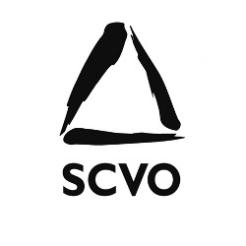The Scottish Council of Voluntary Organisations has said it supports the extension of the Freedom of Information Act to include the provision of all public services, including those provided by charities.
In a consultation on the further extension of coverage of the Freedom of Information (Scotland) Act 2002 to more organisations, which ran from June and closed on Friday, SCVO said that in its view the “public have a right to know all aspects of how publicly funded services are funded and run”.
The consultation was launched following extensions to the Act in April last year which extended it to cover certain trusts that had been created by local authorities to deliver sporting, cultural and leisure activities on behalf of a local authority.
At the time it was made clear that a consultation on the Act being further extended would follow. The organisations now being considered for inclusion are contractors who run privately-managed prisons; providers of secure accommodation for children; grant-aided schools and, independent special schools.
The membership organisation for Scotland’s charities, voluntary organisations and social enterprises said in its consultation response document, published online, that it has maintained a clear position on extension of FoI to the third sector, and that it supports “the extension of Freedom of Information to include the provision of all public services, irrespective of whether those services are provided by public, private or third sector organisations”.
SCVO said it has suggested previously that the best was to achieve this openness would be to insert a Freedom of Information clause into all contractual relationships between government and public service providers which requires compliance. This requirement would remain active for the lifetime of the contract and would only apply to information related to the contract.
The consultation document from the Scottish government confirms that bodies proposed for coverage would only be covered in respect of the information they hold about specified public functions or services.
The proposed changes would come into effect in spring 2016, most likely on 1 April, so bodies would be expected to answer FoI requests from that date.
In answer to whether that time scale is appropriate, SCVO said that this will depend on the support being offered to the organisations to meet their new obligations. It said that these organisations will require time to adapt to changes in internal procedure for staff to receive training on FoI requests.
SCVO also said that any additional costs to third sector organisations incurred by the new obligations “should be fully covered by an increase to the public funding provided to them”.
The Scottish government said a “factor based approach” was used to determine the extent to which a function of an organisation could be described as being ‘of a public nature’. Factors include the extent of public funding of the activity and whether the functions are of a nature that would require them to be performed by a public authority if the body did not perform them.
It also questioned why the four groups of organisations were selected as priorities for extension. It said the “factor based approach provides evidence for the extension of coverage, but there is no justification provided for why these services have been prioritised over others”.
SCVO said that Arms-Length External Organisations in their “governance, funding and services delivered are essentially public bodies in all but name”. It says that these should have been the first priority for further extension of FoI coverage.
However it added that “SCVO has consistently opposed the extension of FoI legislation to individual third sector organisations. In our view this would represent a disproportionate burden on charities and social enterprises and would discriminate against them in respect of their non-government and non-public service work.”










